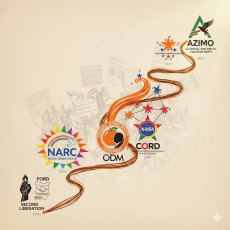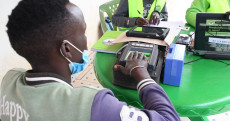- Mombasa and Kilifi government issued an executive order to ban entry, sale and distribution of Muguka. A decision following an increased concern about public health due to overconsumption of the stimulant.
- The ban has been received with a lot of mixed reactions from locals and leaders especially from Mount Kenya.
- Muguka growing counties now seek to move to court to challenge the directive.
The recent ban on Muguka in Mombasa and Kilifi County has sparked a significant controversy among residents and leaders, especially from Mount Kenya. The Governor of Mombasa, Abdulswamad Nassir, issued an executive order on May 23, 2024, a decision that was followed suit by his counterpart Gideon Mung'aro of Kilifi.
The ban prohibits the sale, use, entry and transportation of Muguka in the county. This follows a concern over the drug's impact on public health, particularly among youths.
Eighty per cent of mental health disorders in the streets of Mombasa is due to overconsumption of Muguka, a shocking statistic highlighted by Mombasa Women Empowerment Rehabilitation Centre founder Amina Abdallah.
In the coastal region, most users are men, but the current statistics are breathtaking: Women now account for 40%, an increase from the 10% initially recorded.
The Muguka ban has received mixed reactions, with some community members supporting it as a milestone in the fight against drug addiction and mental health.
Read More
However, Mount Kenya's leaders also strongly criticised the decision. Martha Karua argues that the ban is contradictory and that the government recognises Muguka as legitimate.
Martha has called on the Ministry of Agriculture to investigate the matter and address the contradiction regarding the sale of Muguka.
"In the matter of Muguka ban by Mombasa and Kilifi County, what is the role of @KilimoKE in view of regulations 2021that recognises both Miraa and Muguka as legitimate. There is need to resolve this contradiction," Martha said.
Senior counsel Charles Kanjamo argued that the mandate to ban is solely in the hands of the national government. He criticised the governors for failing to follow the correct procedure through a petition in the parliament.
Embu governor Cecile Mbarire, sharing her view on the matter, revealed that Muguka contributes up to Ksh 22 billion annually to Embu. She added that Muguka contributes Ksh 1 million daily to Mombasa, and the ban will adversely affect revenues and livelihood.
As if that was not enough, Meru Senator, Kathuri Murungi opposed the ban, saying it supports 500,000 people in Meru. He admitted to being a user as well, chews every Saturday, and has never made any irrational decision.
"I chew every Saturday, made decisions for the last 12 years and always very rational; actually if I don't chew there is a problem," Kathuri said.
Miraa and Muguka are predominantly growing in Meru and Embu. The ongoing crisis is uncertainly affecting their future in the Mount Kenya region.
In areas like Igembe and Tigania, 90 per cent of the land occupies the crop.
Muguka's growing counties now seek to move to court to challenge the directive for the ban.
The question remains if the ban will be a success or just a failed attempt!

-1716885283.png)










